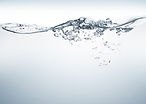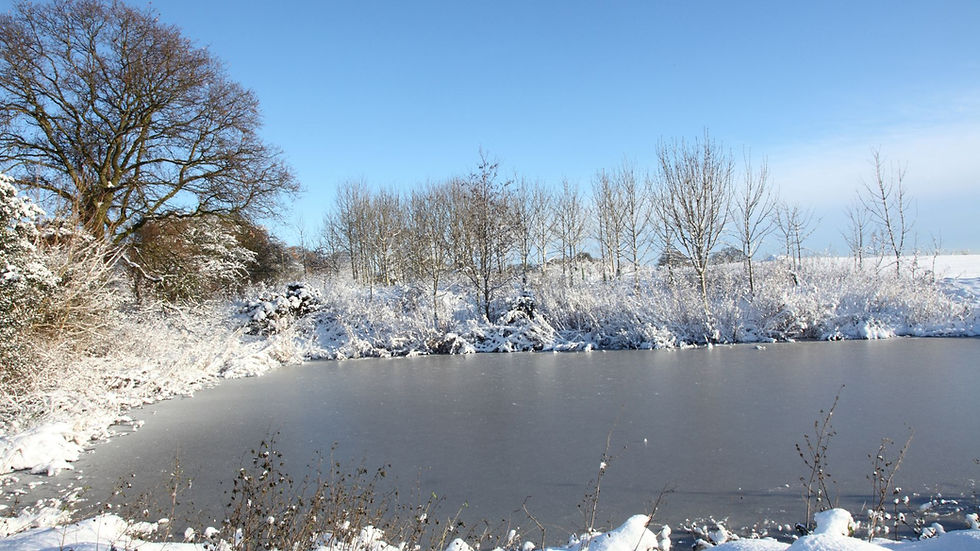The Essential Guide to Water Chemistry in Fish Keeping: Understanding the Nitrogen Cycle and the Role of Beneficial Bacteria in Fish Pond
- Richard Fulford

- May 28, 2024
- 4 min read

Creating a healthy aquatic environment in your fish pond or aquarium is not just about feeding your fish and keeping the water clear. At the core of a thriving fish habitat is the concept of water chemistry, particularly the nitrogen cycle, which is fundamental to the overall health of the aquatic ecosystem.
This guide will dive deep into the importance of water chemistry, explain the nitrogen cycle in detail, and highlight the crucial role of beneficial microbes in maintaining balance. We will also discuss what can happen if these elements are not properly managed and recommend using Oase Bio Kick Premium to ensure a healthy pond or aquarium.
Understanding Water Chemistry in Pond Ecosystems: The Nitrogen Cycle
Water chemistry involves several key parameters that need to be balanced to create a suitable environment for fish and other aquatic life. These include pH, ammonia, nitrites, nitrates, and dissolved oxygen. Each of these plays a significant role in the health and well-being of your fish:
pH Levels: The pH scale measures how acidic or alkaline the water is. Most freshwater fish thrive in a range between 6.5 and 7.5, but some species have specific needs. Incorrect pH levels can cause stress and illness in fish.
Ammonia: Produced by fish waste, uneaten food, and decomposing plants, ammonia is highly toxic to fish, even at low levels. Efficient filtration and regular water changes are necessary to keep ammonia levels in check.
Nitrites and Nitrates: These are less toxic than ammonia but still harmful in high concentrations. The nitrogen cycle helps convert these compounds into less harmful substances.
Dissolved Oxygen: Adequate oxygen levels are vital for fish respiration. Water movement and plants contribute to oxygenating the water.
The Nitrogen Cycle: The Heart of Aquatic Ecosystems
The nitrogen cycle is a biogeochemical process that transforms harmful waste products into less harmful substances, making the environment safe for aquatic life. Here’s how it works:
Ammonia Conversion: Fish waste, decaying plants, and uneaten food produce ammonia. Beneficial bacteria in the water and the filter media convert ammonia into nitrite, a slightly less toxic compound.
Nitrite to Nitrate: Another set of bacteria converts nitrite into nitrate, a much less toxic substance compared to ammonia and nitrite. This step is crucial as high levels of nitrite are also dangerous to fish.
Nitrate Removal: While less harmful, nitrates still need to be managed. Regular water changes and the action of certain plants and additional pond systems can help reduce nitrate levels.
Importance of Beneficial Bacteria
Beneficial bacteria are the heroes of the nitrogen cycle. They are responsible for converting toxic ammonia and nitrites into safer nitrates. These bacteria colonise surfaces in the aquarium, especially in the filter system, where they form what is known as the biological filter.
Biofiltration: This process involves the growth of beneficial bacteria on surfaces within the filter. These microbes consume ammonia and nitrite, effectively detoxifying the water.
Importance of Stable Conditions: Sudden changes in water chemistry can kill these beneficial bacteria or inhibit their ability to process waste. Temperature, pH, and oxygen levels must be stable to support healthy bacterial colonies.
What Can Go Wrong?
Several issues can disrupt the nitrogen cycle and the microbial balance within a fish pond or aquarium:
Overfeeding: Excess food decays and produces ammonia. It's crucial to feed fish only as much as they can consume in a few minutes.
Overstocking: Too many fish produce more waste than the biological filter can handle, leading to a buildup of toxic substances.
Inadequate Filtration: If the filter is too small or not properly maintained, it won’t provide enough surface area for bacteria to thrive.
Chemical Imbalance: Use of certain medications or improper use of water conditioners can harm beneficial bacteria.
Using Oase Bio Kick Premium
To nurture and maintain healthy microbial colonies in your filter system, we recommend using Oase Bio Kick Premium. This product is designed to:
Kickstart the Nitrogen Cycle: Bio Kick Premium contains highly active, concentrated bacteria that rapidly colonize new filter systems or replenish existing systems, accelerating the nitrogen cycle.
Enhance Filter Performance: By introducing robust bacterial strains, Bio Kick Premium ensures that your filter operates at optimal efficiency, breaking down harmful waste quickly.
Reduce Fish Stress: A properly functioning nitrogen cycle reduces fish's risk of toxic shock from ammonia or nitrite spikes.

FishLife Pond Services: Your Partner in Maintaining Water Chemistry
At FishLife Pond Services, we understand the intricacies of the nitrogen cycle and the vital role it plays in maintaining a healthy aquatic environment. Our team of experts is here to help you manage your pond's water chemistry, ensuring your aquatic life thrives in the best possible conditions.
Professional Water Testing and Balancing: We offer comprehensive water testing services to diagnose and correct any imbalances in your pond's water chemistry.
Customized Treatment Plans: Based on our findings, we'll create a treatment plan using products like Oase Bio Kick Premium to enhance the biological filtration and stability of your ecosystem.
Regular Maintenance and Advice: From routine maintenance to emergency interventions, our team provides the support and advice you need to keep your pond healthy all year round.
Conclusion
Understanding water chemistry and the nitrogen cycle is fundamental to successful fish keeping. By maintaining a healthy balance of beneficial bacteria and ensuring proper water conditions, you can create a thriving aquatic environment for your fish. Oase Bio Kick Premium is an excellent tool to support this balance, helping to stabilise your ecosystem and keep your aquatic friends healthy and happy.
FishLife Pond Services is here to guide you through every step of the process, ensuring your pond remains a vibrant and healthy habitat for your fish. Contact us today to learn more about our services and how we can help you achieve the perfect water chemistry for your pond.





Comments